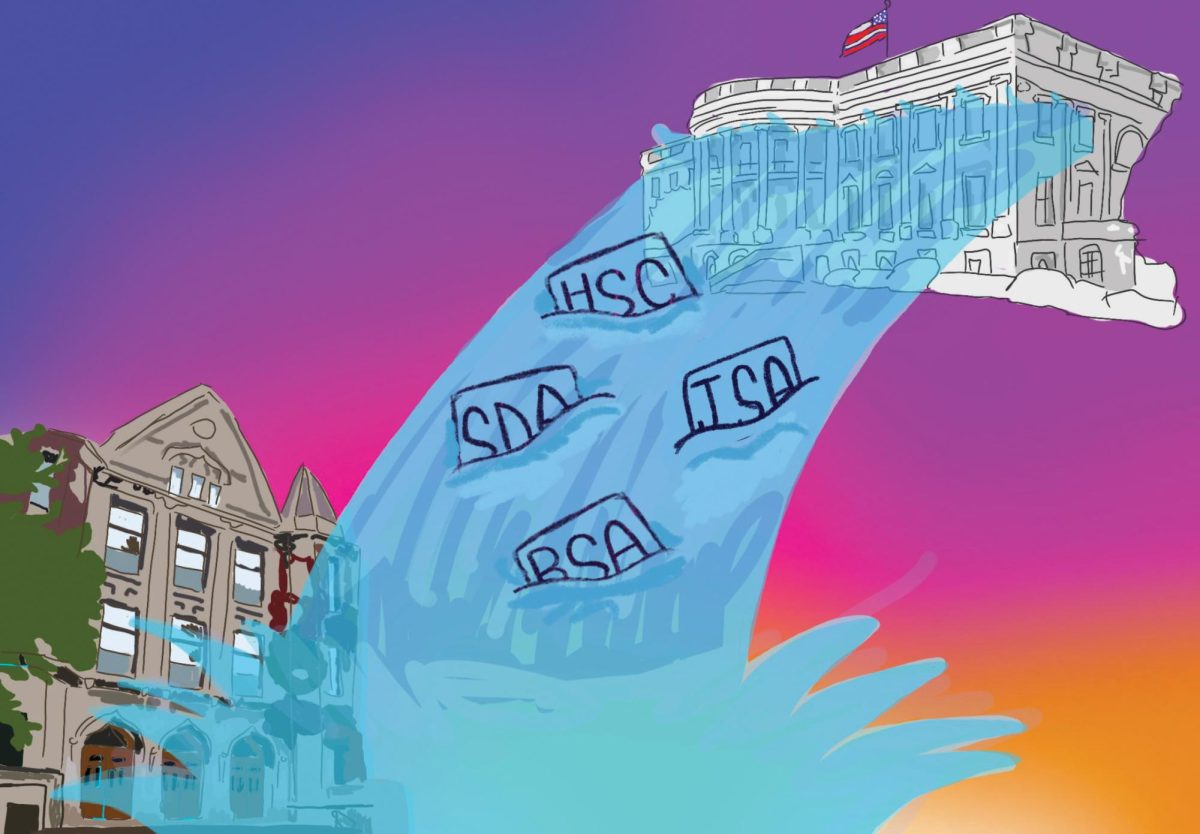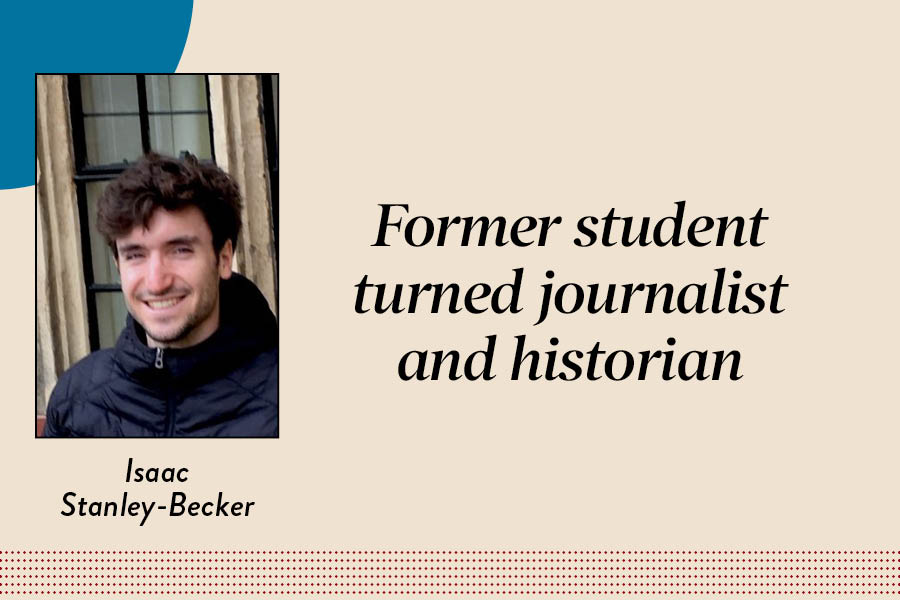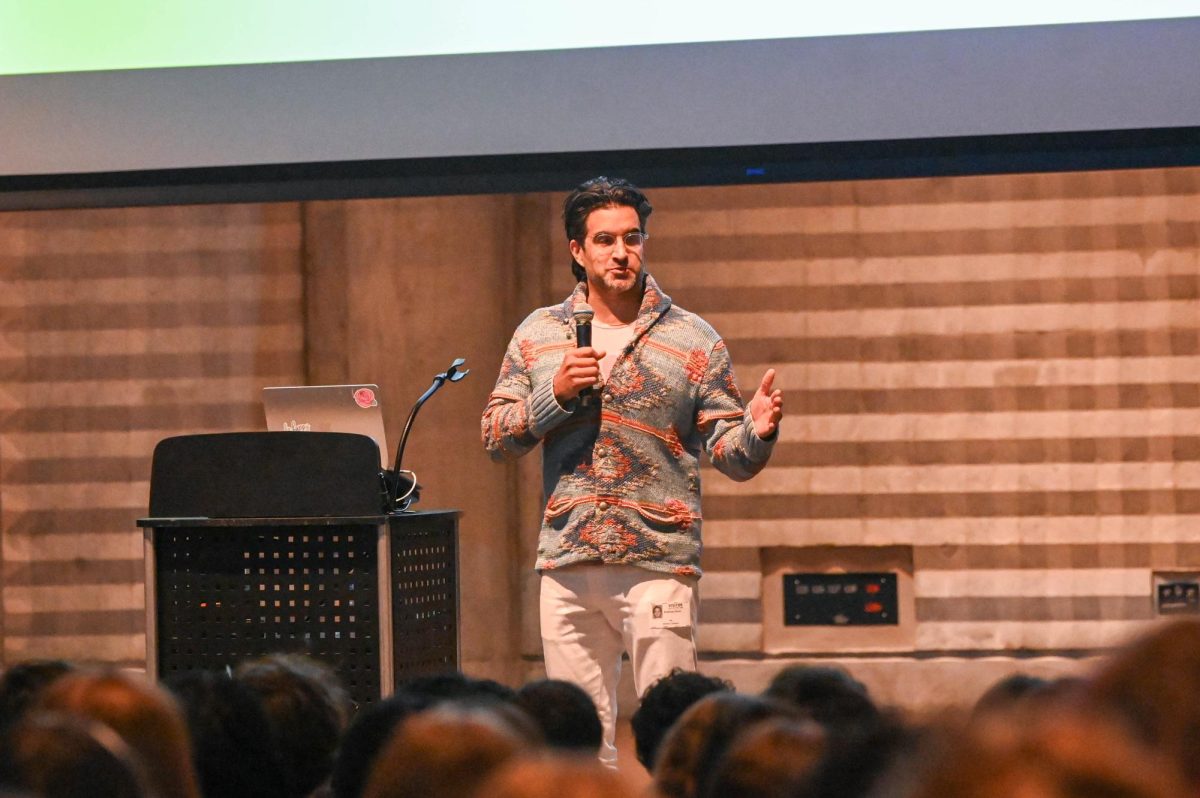Isaac Stanley-Becker is a reporter for The Washington Post and historian of modern Europe who recently authored “Europe Without Borders: History,” a book exploring the Schengen Agreement and free movement in Europe. He discussed the book in a Feb. 7 event at the The Seminary Co-op on 5751 S. Woodlawn Ave.
Mr. Stanley-Becker attended the Laboratory Schools from nursery school through ninth grade, when he served on the U-High Midway. Mr. Stanley-Becker shares his thoughts on his passion for journalism, history and “Europe Without Borders.”
These responses have been lightly edited for clarity and simplicity.
What first got you interested in journalism?
“I was always interested in reading and writing. First at Lab, I tried journalism, and I just loved it. The chance to ask questions, the chance to figure things out for myself, to investigate and explore, and then to tell readers and the public what’s going on around them, was just a thrilling opportunity.”
Were there any specific stories or any experiences on the Midway that had a lasting impact on you?
“I did quite an interesting story for the Midway about an attempt to build an explicitly gay-friendly high school in the Chicago area and some of the debate that that generated about inclusion and identity. That was a pretty interesting experience, and I think today we’re seeing, of course, a lot of discussions about diversity and what kind of programs and efforts like that make sense and what don’t.”
How did you first get interested in history? Was that something that grew alongside your interest in journalism, or did one come before the other?
“I see them as joined. I was interested in reading stories and writing stories, and it’s been said that ‘journalism is the first draft of history,’ and I’m drawn to that concept. I studied history in college, and then I went to graduate school and got a Ph.D. in modern European history, but at the same time, I was reporting about contemporary affairs in Europe, and so I was researching Europe’s history and then writing stories about Europe’s recent past and present. The two have really gone hand in hand. As a historian, you’re able to dive deep into the past and understand the origins of our present condition, and as a journalist, you probe deeply into what’s unfolding in the present day, and both inform each other.”
How did you get interested in investigative journalism specifically?
“All the best journalism is investigative in some way, even if all journalists don’t necessarily use that label or don’t have that title. If you’re reporting on something and revealing previously unknown information, that’s investigative work in one way or another. So I’m drawn to the type of journalism that reveals one secret and then informs the public about what’s going on deep inside governments, businesses or other bureaucracies. And that’s how I came to see the importance of investigative journalism.”
In terms of your book, how would you describe to a high schooler some of the arguments that your book makes?
“Put simply, the book is about how Europe came to have a system that allowed internal free movement, unrestricted by controls at national borders. So when you move across the European continent, in large part, you’re not stopped and asked for your papers or passport when you go from France to Germany, or from Netherlands to Germany, or from Italy into Switzerland. I wanted to investigate why that was and it comes from something called the Schengen Agreement, which was signed in 1985, and that’s really what the book is a history of.”
What led you to be specifically interested in European history?
“I went to graduate school in Europe. I studied at Oxford in England, and it was a pretty interesting period in Europe: it was after the Brexit referendum — Britain’s choice to leave the European Union — and there were a lot of interesting elections unfolding on the continent, and I was covering that. So I wanted to have a historical project that would in some way relate to the work I was doing as a journalist.”
Do you feel like there’s anything going on right now in the world that kind of speaks to your book?
“Absolutely. We’re experiencing a global backlash against immigration and a return to a system of more secure national borders that goes hand in hand with the rise of far-right parties in Europe and in the U.S. So the themes of the book are alive in the present day.”
How did your journalistic skills help you research and write this book? Were there any moments when your reporting instincts kicked in?
“Definitely. When I was identifying and accessing new documents that hadn’t been used previously in scholarship, and when conducting interviews, so knowing how to ask the right questions and find the correct people who can be kind of guides for you to the topic you’re writing about.”
What’s one story you’ve always wanted to write or that you’ve always wanted to explore historically that you haven’t had the chance to yet?
“I’m in the process of exploring and investigating the biggest and most important story in the world right now, which is the second Trump administration and how it’s changing America.”





















































